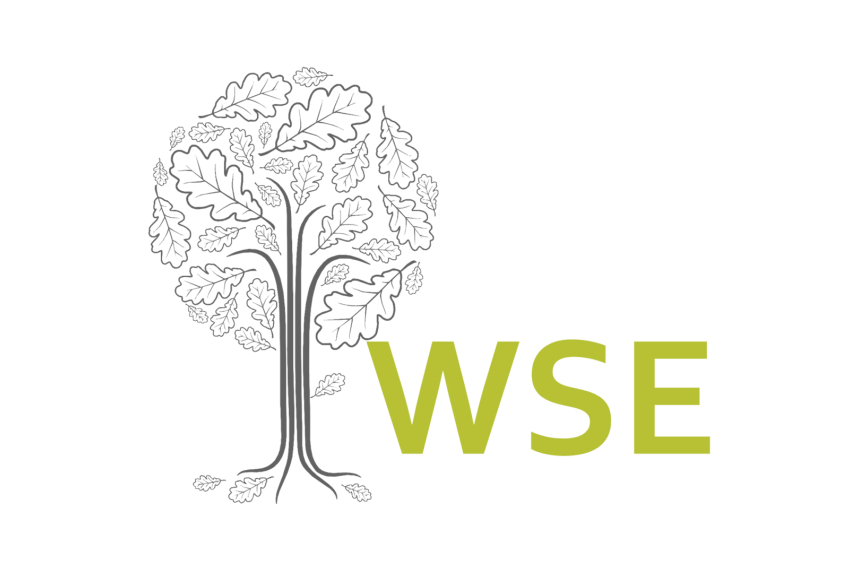LSIWC Researchers Represent Latvia at the International Wood Science and Engineering Conference WSE 2025

Researchers from the Latvian State Institute of Wood Chemistry participated in the 21st Annual Conference of the Northern European Network for Wood Science and Engineering (WSE), which in 2025 gathered more than 130 scientists from 18 countries.
Founded in 2004, the WSE network has for two decades served as a platform for collaboration among wood science researchers, institutions, and industry representatives. This year’s thematic conference, “Green Buildings with Renewable Structural Elements and Adhesives,” was dedicated to the use of renewable materials in construction, emphasizing the importance of wood, biopolymers, and natural adhesives in the context of a climate-neutral economy.
Changes in Wood Characteristics of Pine and Birch Depending on Cambial Age
Research assistant of the Laboratory of Wood Degradation and Protection Lotars O. Vasiljevs presented the results obtained by the laboratory team in a study "Changes in wood characteristics of pine and birch depending on cambial age", which is part of the VPP Forest4LV project No VPP-ZM-VRIIILA-2024/2-0002.
The study analyzed the anatomical structure and physical properties of juvenile and mature wood of pine (Pinus sylvestris L.) and birch (Betula spp.). The results show that birch has smaller differences in anatomical structuralin along the diameter and the transition from juvenile to mature wood occurs at an earlier cambial age compared to pine wood. In contrast, pine has smaller differences in the studied physical properties. The study showed that juvenile wood of both species is characterized by higher water penetration, which must be taken into account when optimizing the gluing process.
This knowledge is important for promoting the wider use of small-dimension wood, which contains high proportion of juvenile wood, in the manufacture of higher value-added products.
Weathering of Biobased Particleboard with Different Coatings After Three-Month Exposure
The team led by Andris Bērziņš – Ramūnas Tupčiauskas, Mārtiņš Andžs, and Gunārs Pavlovičs – presented the study “Weathering of biobased particleboard with different coatings after three-month exposure”, conducted within the Latvian Council of Science FLPP project “Investigation of innovative biomass-based panels for application in external building façade” (lzp-2023/1-0348).
The research assessed the effect of mould and UV exposure on biobased façade panels coated with suberinic acid and chitosan-based finishes.
A three-month outdoor exposure test on the LSIWC rooftop demonstrated that pigmented coatings significantly improved colour stability, while non-pigmented coatings more effectively reduced moisture uptake. The results highlight the practical applicability of these coatings for façade protection in climate-neutral construction projects.
Quantification of Microplastics Formed During Weathering from Wood Plastic Composites
Edgars Kuka presented a study carried out by the research team of the Laboratory of Wood Degradation and Protection, titled “Quantification of microplastics formed during weathering from wood plastic composites”, conducted within the Latvian Council of Science project MicroWPC (lzp-2022/1-0639).
In the research the effect of wood particles on the formation of microplastics from wood–plastic composites (WPC) exposed to UV radiation and moisture was analysed.
The experiments revealed that:
- wood particles in WPC materials act as a promoting factor for microplastic formation, with a higher risk compared to neat plastic.
- microplastic release occurs in all WPC samples, but the amount depends on the wood particle size fraction, wood species, and type of treatment applied.
- the lowest risk of microplastic formation was observed when thermally modified wood particles were used.
- 99% of all microplastics released from WPC were smaller than 500 μm.
The findings underline the need to develop WPC manufacturing solutions that minimize microplastic release while maintaining mechanical performance and surface aesthetics.
Application of Suberinic Acid Adhesives in Wood Composites for Furniture Production
Another LSIWC team – Ramūnas Tupčiauskas, Rūdolfs Bērziņš, Andris Bērziņš, Mārtiņš Andžs, and Gunārs Pavlovičs – presented the paper “Study of suberinic acids-bonded wood composite for furniture applications”, included in the session “Adhesives and Bonding.”
This study focuses on the development of wood-based composite, using suberinic acids extracted from birch bark as a formaldehyde-free and bio-based binder. The LSIWC-patented binder exhibits good adhesion and high form stability, making them suitable for furniture and interior panel production.
The research, carried out within the State Research Programme Forest4LV (No. VPP-ZM-VRIULLA-2024/2-0002), demonstrates that suberinic acid-based adhesives can serve as a sustainable alternative to synthetic resins.
Significance of the Conference
The conference organizers emphasized that WSE 2025 was dedicated to the integration of renewable materials into construction and the strengthening of science–industry collaboration to accelerate the transition toward a climate-neutral and resource-efficient building sector.
The participation of LSIWC researchers demonstrated the institute’s ability to deliver innovations that advance the vision of a climate-neutral, safe, and forward-looking development of materials in both Latvia and Europe.
The presented studies also reflect a broader scientific trajectory – the shift from fossil-based to bio-based raw materials, while maintaining high material quality and industrial relevance.
The 22nd Annual Conference of the Northern European Network for Wood Science and Engineering (WSE) will take place on September 15–16, 2026, in Riga, Latvia. It will be organized by the Latvian State Institute of Wood Chemistry in cooperation with Riga Technical University.
In conjunction with the WSE 2026 conference, a training seminar for students and early-career researchers will be held on September 14, 2026, in Riga. It will be jointly organized by the Latvian State Institute of Wood Chemistry and the Latvian State Forest Research Institute “Silava.”
The conferences organized by the WSE network are held annually with the aim of promoting the professional development of early-career researchers and establishing connections between research groups working in the field of wood science and engineering.
If you wish to express interest in supporting the WSE 2026 conference or have any other questions, please contact the organizers at wse2026@kki.lv
Conference website: WSE2026
